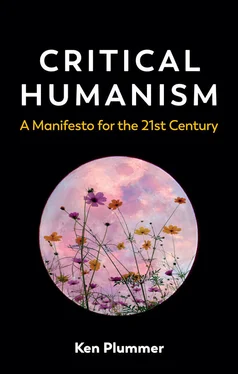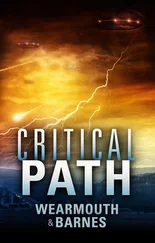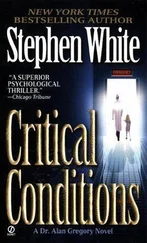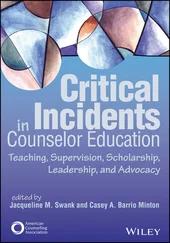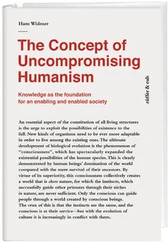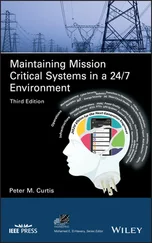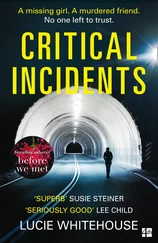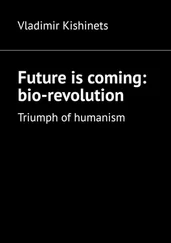For some time, a number of major intellectual and political movements have been trying to bring this ‘rest of the world’ back into our thinking. We need a world humanism, not a Western humanism. As ideas of globalization have accelerated, we have been made to think about the processes and interconnectedness of the world’s nations. More strongly, key ideas around colonization and postcolonization have brought us to see the divide between the global North and the global South, the East and the West, the poor and the rich. Starting perhaps with Gandhi and Franz Fanon, these ideas developed especially in the works of Edward Said. They are now advanced in the writings of Gurminder K. Bhambra, Raewyn Connell, Arturo Escobar, Marisol de la Cadena, Boaventura de Sousa Santos, Bernd Reiter and many others, in a major critique of colonized, metropolitan, Western-centric thought. 14These works suggest there exists a vitality of intellectual and creative humanity across history and cultures that has been ignored or stunted. Providing a much greater awareness of a diverse human world and its ‘ecologies of knowledge’, they raise the ways different ideas are bound up with diverse local cultures and social conditions. Where, for example, do Africa, Asia and Latin America fit into this Enlightenment account? Where are China, Russia and India in this story?
From this, we start to see the role of power, ideology and hegemony in understandings of the Enlightenment. ‘Knowledges’ of many of the world’s countries – like the countries themselves – have been colonized. Spanish sociologist Boaventura de Sousa Santos notably talks about the ‘waste of experience’ and a world knowledge (epistemology) where so much has been excluded through ‘blindness’ and ‘absences’. 15A wide rich mosaic of diverse cultures all over the world, a pluriverse, gets excluded by Western thought. The lush richness of world humankind gets denied, lost or betrayed.
A second debate is closely linked and also Western. In this, humanism is a secular, rational critique of religion. This is a little odd given that such luminaries as the Pope, the Archbishop of Canterbury and several Chief Rabbis also proclaim humanism. Nevertheless, since the Enlightenment, many humanists have argued for the Death of God. An age of secularization is arriving whereby rationality, objectivity and truth will come to reign, old mythologies and fables of religions past will ebb and flow away, and science will come to ‘lighten the burden of human existence’. 16‘Humanism’ becomes the term for rational progress in the world. For much of the twentieth century, Western intellectuals generally envisioned religion’s demise in this new world. 17And the idea of humanism became almost synonymous with atheism or nonbelief.
Such arguments have been widely promoted by public atheists: notably, in works like Richard Dawkins’s bestselling The God Delusion , Sam Harris’s The Moral Landscape , Christopher Hitchens’s God Is Not Great 18and the works of many others, such as Daniel C. Dennett and A. C. Grayling. Most contemporary organizations for humanism, for example Humanists UK and Humanist International, take this view. It is a stance also taken in the important Wiley Blackwell Handbook of Humanism (2015). 19And in some accounts, these claims go much further. If there is a God, then it is indeed the human being, humanity itself, that is this God: Homo Deus. In his bestselling work, the Israeli Yuval Noah Harari sees modern humanism as ‘the worship of man’: ‘On the verge of becoming a God, poised to acquire not only eternal youth but also the divine oblivion on creation and destruction.’ 20Likewise, as the physicist Brian Cox has said: ‘We are the Cosmos made conscious and life is the means by which the universe understands itself.’ 21
Widespread as this view may be in scientific communities and some Western countries (though certainly not in the United States), the secular claim remains a minority view. 22There may well be major countries where religious storytelling has become much less significant 23(atheism attracts around 14 per cent of the world, mainly in Western Europe and the Nordic countries). Yet the power of religion is still growing in many countries across the world. Christianity remains the largest world religion, with around 2.4 billion adherents (and growing). The Islamic world expects a 70 per cent growth between 2015 and 2060. Far from the secular world that was once predicted, a post-secular age has arrived. 24
In examining this, sociologist Ulrich Beck has suggested that religion in the twenty-first century now has two faces. 25One face takes a decided turn towards fundamentalism: there is only one story, one God, one truth. It has led to a proliferation of devastating major armed conflicts and global violence. In the Middle East between Shi’ite and Sunni, and a global Jihad; in the Israeli–Palestinian conflict; in the Syrian civil war between ISIS, Kurdish forces, the Assad government and others; in the wars in Afghanistan and Iraq, all raising issues of religious extremism. There are also Buddhist revolts in Asia: for example, Sri Lanka, Mongolia and Myanmar, where the Arakan Rohingya Salvation Army (ARSA) attacked the Muslim Rohingya community, creating a large refugee group. And lesbian and gays are under attack in many countries from fundamentalist Muslims, Christians and Jews. 26Fundamentalism is absolute and seeks to destroy any whiff of plurality, including humanity, through devastating violence.
More hopefully, a second ‘religious’ route is outlined by Beck. It is a more open, plural and tolerant vision. This response takes a more humane and cosmopolitan narrative, encouraging people to live together with their differences. It draws on past religious works and more recent arguments of people like Mohandas Gandhi, Thich Nhat Hanh, Martin Luther King and the Dalai Lama to work towards creating interfaith communities, listening to others and searching for basic common values. In 1993, the celebrated theologian Hans Küng drew on the key principles of the world’s major religions to build ‘a global ethic’. 27This was based on a declaration made at the Parliament of the World’s Religions in 1993 by more than 200 leaders from forty or more different faith traditions; it claimed four essential affirmations/commitments as shared principles essential to a global ethic:
commitment to a culture of nonviolence and respect for life;
commitment to a culture of solidarity and a just economic order;
commitment to a culture of tolerance and a life of truthfulness;
commitment to a culture of equal rights and partnership between men and women.
Here is an indicator of visions to grow. Today we can find a major mission for a common discourse across civilizations and religions alongside the development of this interfaith dialogue. 28We find it evidenced in works like the Dalai Lama’s Beyond Religion , Daisaku Ikeda’s A New Humanism and Felix Unger and Daisaku Ikeda’s The Humanist Principle . 29
Beck argues that religions need to become civilized if the world is to survive. The absolutist and totalitarian narrative of religion will feed into populism and encourage both hatred and violence. It makes humanity very unsettled. It threatens its extinction. The other open response suggests the need to practise values like the capacity for peace and global justice rather than totalitarianism and violence. 30These contrasting capacities can be found throughout the history of religion. Religions of love and religions of hate provide two contrasting unresolved tensions over being human. It is in the hands of the latter to destroy the world.
Humanism as rationality and science
Читать дальше
